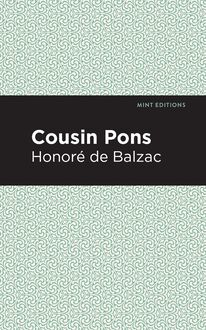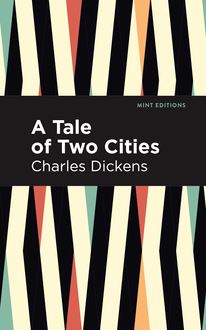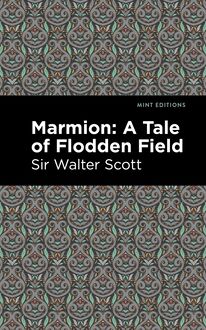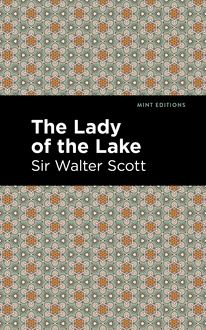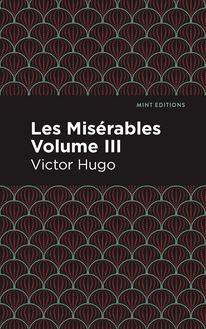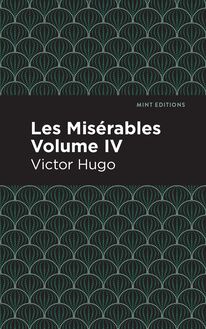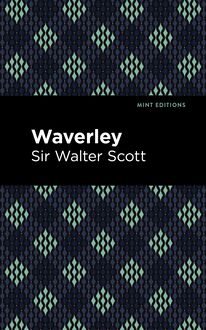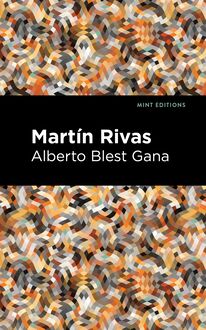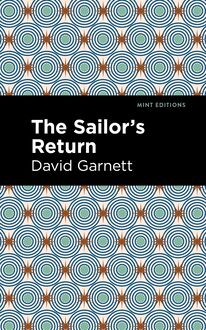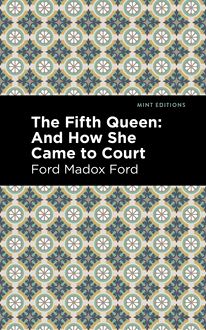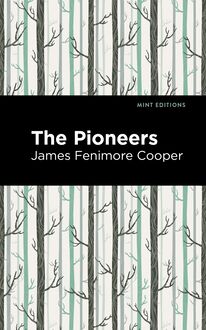-
 Univers
Univers
-
 Ebooks
Ebooks
-
 Livres audio
Livres audio
-
 Presse
Presse
-
 Podcasts
Podcasts
-
 BD
BD
-
 Documents
Documents
-
- Cours
- Révisions
- Ressources pédagogiques
- Sciences de l’éducation
- Manuels scolaires
- Langues
- Travaux de classe
- Annales de BEP
- Etudes supérieures
- Maternelle et primaire
- Fiches de lecture
- Orientation scolaire
- Méthodologie
- Corrigés de devoir
- Annales d’examens et concours
- Annales du bac
- Annales du brevet
- Rapports de stage
La lecture à portée de main
Vous pourrez modifier la taille du texte de cet ouvrage
Découvre YouScribe en t'inscrivant gratuitement
Je m'inscrisDécouvre YouScribe en t'inscrivant gratuitement
Je m'inscrisEn savoir plus
Vous pourrez modifier la taille du texte de cet ouvrage
En savoir plus

Description
Who Would Have Thought It? (1872) is a novel by Mexican American author María Amparo Ruiz de Burton. The novel, Ruiz de Burton’s debut, is a semi-autobiographical story of race, class, and gender set before and during the American Civil War. Central to its focus are the ways in which the Californio elite were forced into competition with Anglo-American settlers arriving out west after the Treaty of Guadalupe Hidalgo ended the Mexican American War.
While on a geological expedition in the American Southwest, Dr. Norval is tasked with rescuing a young girl from her Apache captors. He finds Maria Dolores Medina, a ten-year-old girl from a prominent Californio family of Spanish-Mexican heritage, and is asked by the girl’s mother to adopt her and take her back to New England. Norval promises to do so and returns with the girl, surprising of his wife who harbors deep racial prejudices and mistrusts anyone born into the Catholic faith. As the American Civil War begins, Dr. Norval, a Democrat, is suspected of harboring Confederate sympathies and is eventually forced into exile in Egypt. When he leaves, Lola stays behind with his wife. Both personal and political, historical and fictional, Who Would Have Thought It? is a novel that captures a complex moment in American history without losing sight of the humanity at its heart.
With a beautifully designed cover and professionally typeset manuscript, this edition of María Amparo Ruiz de Burton’s Who Would Have Thought It? is a classic of Mexican American literature reimagined for modern readers.
Sujets
Informations
| Publié par | Mint Editions |
| Date de parution | 24 mars 2021 |
| Nombre de lectures | 0 |
| EAN13 | 9781513287683 |
| Langue | English |
| Poids de l'ouvrage | 1 Mo |
Informations légales : prix de location à la page 0,0500€. Cette information est donnée uniquement à titre indicatif conformément à la législation en vigueur.
Extrait
Who Would Have Thought It?
María Amparo Ruiz de Burton
Who Would Have Thought It? was first published in 1872.
This edition published by Mint Editions 2021.
ISBN 9781513282664 | E-ISBN 9781513287683
Published by Mint Editions®
minteditionbooks.com
Publishing Director: Jennifer Newens
Design & Production: Rachel Lopez Metzger
Project Manager: Micaela Clark
Typesetting: Westchester Publishing Services
C ONTENTS I. T HE A RRIVAL II. T HE L ITTLE B LACK G IRL III. T HE M YSTERIOUS B IG B OXES IV. W HAT THE M YSTERIOUS B OXES C ONTAINED V. T HE R OUGH P EBBLES VI. L OLA C OMMENCES H ER E DUCATION VII. L OLA ’ S M OTHER VIII. “T HE T ROPHIES OF M ILTIADES DO NOT LET ME SLEEP ” IX. P OTATIONS , P LOTTING AND P ROPRIETY X. H OW A V IRTUOUS M ATRON WAS K EPT A WAKE XI. M RS . N ORVAL D ID N OT E NJOY H ER B UCKWHEAT -C AKES , AND J ULIAN W OULDN ’ T W RITE A NY M ORE P OETRY XII. S OMETHING A BOUT THE S PRIG P EDIGREE XIII. W HAT M R . I SAAC S PRIG F OUND AT THE “D EAD -L ETTER O FFICE ” XIV. T HE D OCTOR WAS R EWARDED FOR L ISTENING TO M R . H ACKWELL ’ S S ERMON XV. M RS . N ORVAL ’ S H IGH P RINCIPLES B EGIN T HEIR W ORK XVI. “V ENI , V IDI , V ICI ” XVII. J ULIUS C AESAR C ACKLE , A M ODERN D ARIUS XVIII. L AVINIA TO THE R ESCUE XIX. M RS . N ORVAL ’ S H IGH P RINCIPLES ON THE R AMPAGE XX. L AVINIA O UTDOES THE S PARTAN W OMEN XXI. J ULIAN AND H ACKWELL I NSPECT THE H ORRID S POTS XXII. “T HE A WFUL L ITTLE B ELL ” D ESCRIBED BY M RS . C ACKLE XXIII. “I T MAY BE FOR YEARS , AND IT MAY BE FOREVER ” XXIV. L AVINIA ’ S E XPERIENCES IN W ASHINGTON XXV. A T THE C APITOL .—M R . C ACKLE AT H OME XXVI. “I M UST I SAAC BE L EFT TO S TARVE ?” XXVII. N O , I SAAC S HALL N OT BE LEFT TO STARVE XXVIII. M R . H ACKWELL AND THE M ADAM C ONSOLE E ACH O THER XXIX. L AVVY ’ S E XPERIENCE AS H OSPITAL N URSE XXX. C APTAIN H ACKWELL B ECOMES A H ERO AND IS B REVETED XXXI. T HE M AJOR IS THE O BJECT OF G REAT S OLICITUDE XXXII. M RS . N ORVAL ’ S C ONSCIENCE S PEAKS L OUDLY XXXIII. M RS . N ORVAL ’ S C ONSCIENCE W AXES D ICTATORIAL .—S HE O BEYS XXXIV. M RS . N ORVAL ’ S V IRTUOUS I MPULSE R EWARDED XXXV. M ESSRS . W AGG AND H EAD T RAVEL T OGETHER XXXVI. T HE R ETURNED P RISONERS , AND W HAT T HEY S AID XXXVII. M RS . N ORVAL ’ S M ENTAL D EBUT XXXVIII. I N W HICH THE M AJOR , LIKE Y ORICK , WAS A F ELLOW OF I NFINITE H UMOR XXXIX. J ULIAN C ARRIES THE W AR INTO A FRICA XL. T HE M AJOR ’ S S TAFF XLI. I SAAC IN THE S OUTHERN C ONFEDERACY XLII. “S HAKE NOT THY GORY LOCKS AT ME . T HOU CANST NOT SAY I DID IT ” XLIII. I SAAC IN THE L AND OF THE A ZTECS XLIV. B OUND FOR THE U NITED S TATES XLV. H OW J ULIAN ’ S P ATRIOTIC S ONG WAS C UT S HORT XLVI. “O H , R OMEO , WHERE ART THOU ?” “J E PLEURE , ET LE R OL S ’ AMUSE !” XLVII. J ULIAN S TATES H IS C ASE TO THE P RESIDENT XLVIII. “H OOKER AND S KINNER , S OLICITORS AND A TTORNEYS - AT -L AW ” XLIX. L IEUTENANTS W AGG AND H EAD ENTER THE G RAND M ONDE L. L OLA H EARS I MPORTANT N EWS LI. M ADEMOISELLE M INA ’ S A CCIDENT LII. J ULIAN AT THE W HITE H OUSE LIII. J ULIAN ’ S F ORTUNES TAKE A N EW T URN LIV. “S O , INSTEAD OF A PISTOL , HE COCKED HIS TAIL . ‘A HA !’ QUOTH HE , ‘ WHAT HAVE WE HERE ?’” LV. H IS E X -R EVERENCE S HOWS THE C LOVEN F OOT LVI. H E AWOKE ONE MORNING AND FOUND HIMSELF FAMOUS LVII. W HO WOULD HAVE THOUGHT IT ? LVIII. T HE M AJOR B EFORE M RS . N ORVAL ’ S C HAIR LIX. J ULIAN AND H ACKWELL V IS - A -V IS LX. “I L N ’ Y A QUE LES M ORTS QUI NE REVIENNENT PAS !” C ONCLUSION
I
T HE A RRIVAL
“What would the good and proper people of this world do if there were no rogues in it,—no social delinquents? The good and proper, I fear, would perish of sheer inanity,—of hypochondriac lassitude, or, to say the least, would grow very dull for want of convenient whetstones to sharpen their wits. Rogues are useful.”
So saying, the Rev. Mr. Hackwell scrambled up the steep side of a crazy buggy, which was tilting ominously under the pressure of the Rev. Mr. Ham merhard’s weight, and sat by him. Then the Rev. Hackwell spread over the long legs of his friend Hammerhard a well-worn buffalo-robe, and tucked the other end carefully under his own graceful limbs, as if his wise aphorism upon rogues had suggested to him the great necessity of taking good care of himself and friend, all for the sake of the good and dull of this world.
“May I inquire whether present company suggested the philosophical query and highly moral aphorism? and if so, whether I am to be classed with the dull good, or the useful whetstones?” asked Mr. Hammerhard the reverend.
Mr. Hackwell smiled a smile which seemed to say, “Ah, my boy! you know full well where we ought to be classed;” but he answered,-
“I was thinking of Dr. Norval.”
“Of Dr. Norval! And in what category?”
“In that of a whetstone, of course.”
Mr. Hammerhard looked at his friend, and waited for him to explain his abstruse theory more clearly.
“I was thinking,” Mr. Hackwell continued, “how, in default of real rogues (there being none such in our community, eh, Ham? ahem!), our good and proper people have made a temporary whetstone of Dr. Norval’s back. Which fact goes to prove that a social delinquent—real or supposed—is a necessity to good people. As for the charity of the thing, why should people who have all the other virtues care to have charity?”
“An excellent text for next Sunday,” said Mr. Hammerhard, laughing. Mr. Hackwell joined in the laugh, and with a series of pulls and jerks to the reins, he began to turn slowly the big head of a yellow horse of a Gothic build and slow motion, in the direction of the railroad depot, for the two divines were going to meet Dr. Norval, who was expected to arrive from California in the six P.M. train from New York that evening.
The yellow beast hung down his big head, put out his tongue, shut tight his left eye, and started, looking intently at the road with the right eye opened wide, as if he had been in the habit of wearing an eyeglass, which he had just dropped as he started.
Hi! hi! hi! went the crazy buggy, as if following the big-headed beast just to laugh at him, but in reality only squeaking for want of oiling and from great old age.
“Confound the brute! He squints and lolls his tongue out worse than ever!” exclaimed Mr. Hack well. “And the rickety vehicle fairly laughs at us! Hear it!”
Hi! hi! creaked the buggy very opportunely.
“Look here, Ham, it is your turn to grease the wheels now. I greased them last time,” added Hackwell.
“Greasing the wheels won’t prevent the crazy, dilapidated concern from squeaking and going to pieces, any more than your sermons prevent some members of your congregation from gossiping and going to the devil,” answered Mr. Hammerhard, sententiously.
“I wish I could send them there in this wagon, all, all, the palsied beast, and the rotten wagon, and the penurious Yankees, that won’t give us a decent conveyance,” said Mr. Hackwell.
“All the rich people of our town belong to your congregation,—all the rich and the good. Make them shell out, Hack; you are the fashion,” Hammerhard observed.
“Yes, that is the reason I drive this fashionable turn-out. No, they won’t give except it is squeezed out of them. They are so good, you know. My only hope is in Dr. Norval.”
“Because he is a whetstone?” asked Ham.
“Exactly. Because he is the only man who don’t pretend to be a saint. Because he is the only one in this village who has a soul, but makes no parade of the trouble it gives him to save it. ”
“His virtuous wife and Mrs. Cackle will save his soul for him. You would think so if you had heard Mrs. Cackle’s conversation today with my wife.
“The old lady gave us a hash of it well spiced. We went over the vast field of Mrs. Norval’s virtues, and the vaster one of the doctor’s errors, all of which have their root in the doctor’s most unnatural liking for foreigners. That liking was the cause of the doctor’s sending his only son Julian to be educated in Europe,—as if the best schools on earth were not in New England,—and Heaven knows what might have become of Julian if his heroic mother had not sent for him. He might have been a Roman Catholic, for all we know. That liking was also the cause of the doctor’s sending Isaac to be a good-for-nothing clerk in sinful Washington, among foreigners, when he could have remained in virtuous New England to be a useful farmer. And finally, impelled by that liking, the doctor betook himself to California, which is yet full of ‘ natives .’ And as a just retribution for such perverse liking, the doctor was well nigh ‘roasted by the natives,’ said the old lady. Whereupon, in behalf of truth, I said, ‘Not by the natives, madam. The people called “ the natives ” are mostly of Spanish descent, and are not cannibals. The wild Indians of the Colorado River were doubtless the ones who captured the doctor and tried to make a meal of him.’ ‘Pe haps so,’ said the old lady, visibly disappointed. ‘To me they are all alike,—Indians, Mexicans, or Californians,—they are all horrid. But my son Beau says that our just laws and smart lawyers will soon “ freeze them out .” That as soon as we take their lands from them they will never be heard of any more, and then the Americans, with God’s help, will have all the land that was so righteously, acquired through a just war and a most liberal payment in money.’ Ain’t that patriotism and Christian faith for you?” added Mr. Hackwell.
“For yourself, since it comes from one of the pillars of your congregation,” answered Mr. Hammer hard, laughing, Mr. Hackwell too joining in the laugh, and touching up the horse, which tripped as he always did when pretending to trot, and the quickened motion caused the crazy vehicle to join in also with a series of squeaks, which made Mr. Hack well’s blood curdle, and set his teeth on edge, although a philosopher.
Whilst the two divines thus beguiled their way to the depot, the subject of their conversation—Mrs. Cackle—made hers laboriously towards h
-
 Univers
Univers
-
 Ebooks
Ebooks
-
 Livres audio
Livres audio
-
 Presse
Presse
-
 Podcasts
Podcasts
-
 BD
BD
-
 Documents
Documents
-
Jeunesse
-
Littérature
-
Ressources professionnelles
-
Santé et bien-être
-
Savoirs
-
Education
-
Loisirs et hobbies
-
Art, musique et cinéma
-
Actualité et débat de société
-
Jeunesse
-
Littérature
-
Ressources professionnelles
-
Santé et bien-être
-
Savoirs
-
Education
-
Loisirs et hobbies
-
Art, musique et cinéma
-
Actualité et débat de société
-
Actualités
-
Lifestyle
-
Presse jeunesse
-
Presse professionnelle
-
Pratique
-
Presse sportive
-
Presse internationale
-
Culture & Médias
-
Action et Aventures
-
Science-fiction et Fantasy
-
Société
-
Jeunesse
-
Littérature
-
Ressources professionnelles
-
Santé et bien-être
-
Savoirs
-
Education
-
Loisirs et hobbies
-
Art, musique et cinéma
-
Actualité et débat de société
- Cours
- Révisions
- Ressources pédagogiques
- Sciences de l’éducation
- Manuels scolaires
- Langues
- Travaux de classe
- Annales de BEP
- Etudes supérieures
- Maternelle et primaire
- Fiches de lecture
- Orientation scolaire
- Méthodologie
- Corrigés de devoir
- Annales d’examens et concours
- Annales du bac
- Annales du brevet
- Rapports de stage
